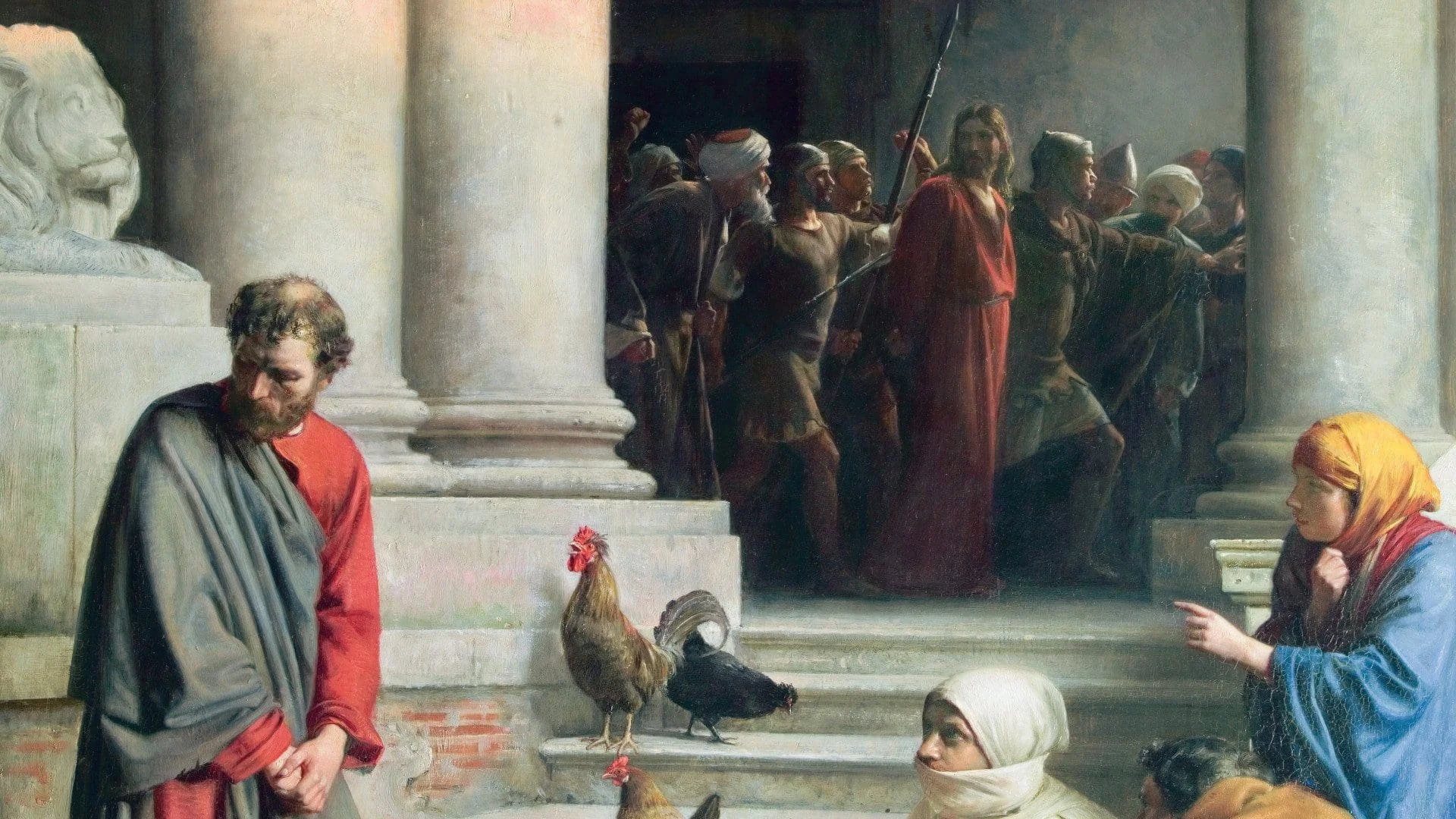Mark 14:65-72
In This week’s reading of the Gospel of Mark, Mark 14:65-72 This passage highlights both human frailty and the fulfillment of God's plans. It sets the stage for Peter's eventual restoration in the later chapters of the Gospels and recounts the moment when Peter denies Jesus. Here are the key points:
Peter in the Courtyard (v. 65-68):
Peter is in the courtyard of the high priest's house, warming himself by the fire. A servant girl recognizes him as one of Jesus' followers and accuses him of being with Jesus, but Peter denies it, saying, "I don’t know or understand what you’re talking about."The Second Denial (v. 69-70):
The servant girl sees Peter again and tells those standing nearby that he is one of Jesus' disciples. Peter denies it again, insisting, "I am not."The Third Denial (v. 71-72):
Those around Peter press him, saying that he must be a follower of Jesus because he is a Galilean. Peter, again, denies it, cursing and swearing that he doesn't know Jesus. Immediately, a rooster crows, fulfilling Jesus’ prediction that Peter would deny him three times before the rooster crowed. Peter then remembers Jesus’ words and breaks down, weeping.
Key Themes:
Peter's Fear and Weakness: Despite his earlier bold promises to remain faithful, Peter succumbs to fear and denies Jesus three times.
Fulfillment of Prophecy: Jesus' prediction of Peter's denial (Mark 14:30) is fulfilled precisely, showing the accuracy of Jesus' foreknowledge.
Peter's Regret: Peter’s weeping signifies deep sorrow and repentance for his failure.
Like Peter, we are all prone to fail or fall short due to human weaknesses—fear, selfishness, pride, etc. Recognizing this frailty is the first step toward receiving God’s grace. Jesus, in his compassion, meets us in our brokenness, just as he reached out to Peter after his denial. When we humbly acknowledge our need for forgiveness, we open ourselves to God's transformative power.
Jesus’ death and resurrection are the foundation of our salvation. He paid the penalty for human sin, allowing us to be reconciled with God. By trusting in Him and His sacrifice, we are spiritually restored. In the same way that Peter’s failure was not the end of his story, our failures are not final in God's plan. Through Jesus, our sins are forgiven, and we are empowered to fulfill the purposes God has for us.
Ultimately, our frailty is met by God's strength. To be part of God’s plan, we are called to trust Him in faith. We do not rely on our own strength, but on God's sufficiency and grace. This trust enables us to step forward in faith, knowing that God’s plans will be fulfilled, even through our imperfect lives.
We are saved and empowered by Jesus to overcome our human frailty and participate in God’s grand purposes. Through acknowledging our need for grace, trusting in Jesus’ redemptive work, relying on the Holy Spirit, experiencing restoration, and living by faith, we become active participants in God's plans, despite our weaknesses. Just as Peter's life was not defined by his moment of failure, our lives are defined by Christ's grace and the ongoing work of the Holy Spirit.
In God’s grip,
Pastor Chuck Church
If you are reading the Gospel of Mark with Pastor Chuck this year, below is a short and simple guide to doing so for this week:
Prayer: Heavenly Father, your words expose my innermost thoughts and desires. I am an open book before you when I read your book. May your truths work as I read of your holiness, truth, and love. May the power of your word be known in my life so that I might genuinely have the abundant life you came to give. Amen.
Read: Mark 14:65-72
Questions to guide your thinking:
1. How do I respond under pressure when my faith is tested?
Peter, under pressure and fear, denies knowing Jesus three times despite his earlier declaration of loyalty.
Reflection: Have I ever denied or downplayed my faith out of fear of judgment, rejection, or persecution? How can I strengthen my courage to stand firm in my beliefs?
2. Do I recognize the times I fall short and seek forgiveness?
After his third denial, Peter hears the rooster crow and remembers Jesus’ prophecy, leading him to weep bitterly.
Reflection: How do I respond when I realize I’ve failed in my faith or actions? Do I bring my failures to God in repentance, trusting in His grace and forgiveness?
3. Do I seek to align my words and actions with my faith?
Peter’s words of denial contradict his earlier claims of unwavering loyalty to Jesus (Mark 14:29–31).
Reflection: Are there areas in my life where my actions or words don’t reflect my commitment to Jesus? How can I bring these into alignment?
4. How do I respond when others mock or mistreat my faith?
Jesus is mocked, beaten, and spat upon, yet He does not retaliate or lose sight of His mission.
Reflection: Do I remain faithful and composed when my beliefs are mocked or ridiculed, trusting in God’s justice and plan?
5. How do I react to warnings or spiritual insight I’ve received?
Jesus had warned Peter about his impending denial, yet Peter was unprepared and overconfident in his own strength.
Reflection: Have I ignored or underestimated warnings from Scripture, the Holy Spirit, or godly counsel? How can I stay more vigilant and reliant on God’s strength?

